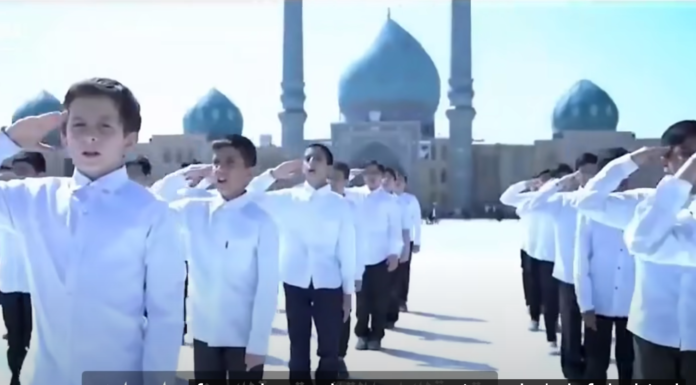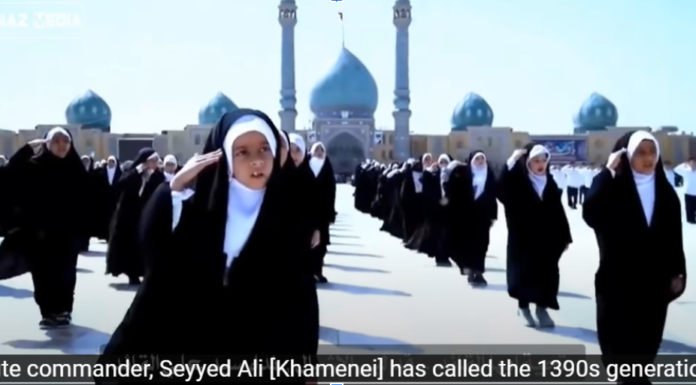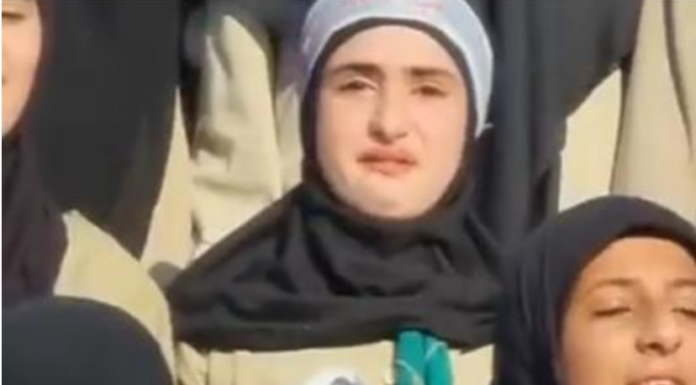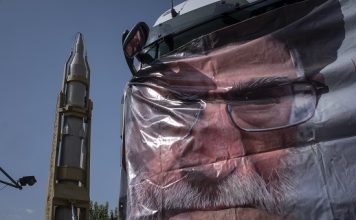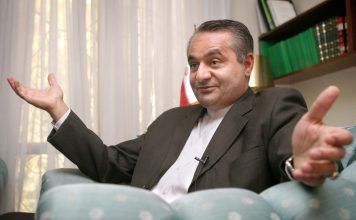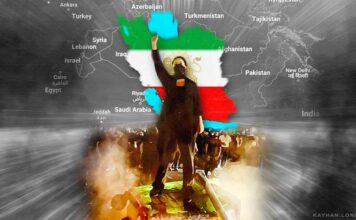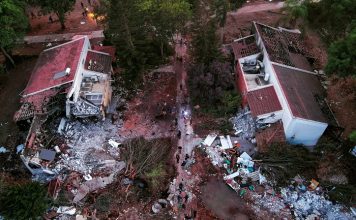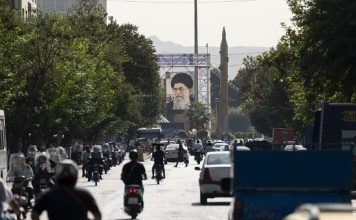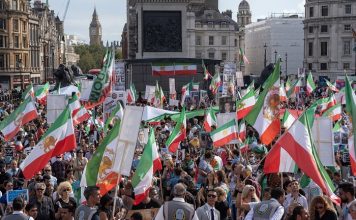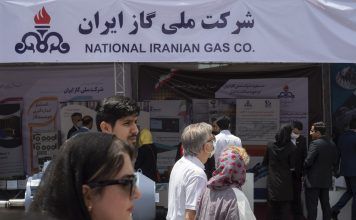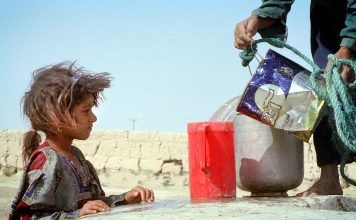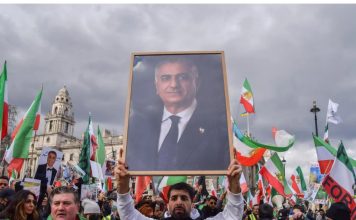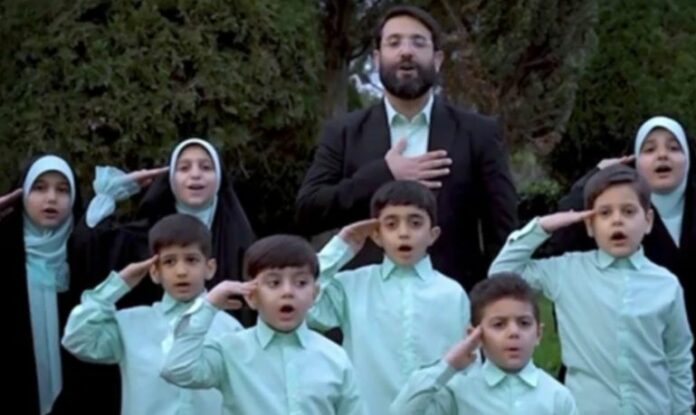
By Potkin Azarmehr
Iran has marked the 33rd anniversary of Ayatollah Ruhollah Khomeini’s death with a new revolutionary anthem sung by boys and girls segregated in town squares, mosques and stadiums across the country.
Ceremonies have been held in sports stadiums nationwide with supporters performing the anthem on the June 3 anniversary date of the Ayatollah’s death.
The regime hopes that the new anthem’s catchy tune will help win over a new generation. To reach a broad audience, the lyrics have been translated into several languages — part of Iran’s soft power strategy to export the revolution to the countries in the region and even further as far as England.
Meanwhile, Iran’s ruling clerics are facing an existential threat from their own offspring who are asking their parents, “Why did you overthrow the Shah?”
The question by younger Iranians — why an Islamic revolution was necessary four decades ago when the country was enjoying a period of unprecedented growth, prosperity, peace and stability — seemed to send Tehran’s Friday Prayer Leader Ahmad Khatami into a rage.
“Some are saying that to save the clergy, we should resign from all our official posts. They don’t understand what they are saying. Resigning from our official posts is synonymous to us handing over the government and saying that we are not up to it,” Tehran’s Friday Prayer Leader Ahmad Khatami said.
In order to convey to the young generations the zeal of the 1979 revolutionary days, the regime has resorted to making multiple music videos of children born in the last decade, singing the anthem, “Salute Commander.” They give a military salute, pledging their unswerving loyalty to Supreme Leader Ali Khamenei.
The imagery, and the lyrics sung by the children, bring to mind the public displays of loyalty to the “Dear Leader” and the “Great Leader” in North Korea.
The original Persian lyrics of the anthem are heavily ideological: “In spite of my small size, when the time comes I will rise up for you … I am a child but the life of my family and I belong to you.”
The children also raise their right arm and sing: “I make an oath to become your Qassem Soleimani when you need me,” and pledge to become Khamenei’s “nameless soldiers,” a reference to Iran’s intelligence operatives.
In line with Iran’s practice of exporting the revolution, the anthem has been translated into Arabic, Turkish, Azeri, Urdu, Hindi and English.
In Turkey, the pro-Iranian Ahl-ul-Beyt Scholars Association (EHLADER) held a ceremony at Istanbul’s Imam Zin al-Abedin Mosque marking the anniversary of Khomeini’s death. It featured segregated and uniformed boys and girls singing “Salute Commander ” in front of posters of Khomeini and the current leader of the Islamic Republic, Ayatollah Ali Khamenei.
One of the speakers at the ceremony was Nureddin Şirin, the editor-in-chief of the pro-Iranian Kudüs TV [Al-Quds TV]. He was one of the suspects identified by Turkish prosecutors during a 2011 investigation into a sophisticated espionage network run by the Islamic Revolutionary Guard Corps (IRGC) Quds Force. It exposed the depth and extent of infiltration of Turkish institutions by Iranian elements.
In Nigeria, pro-Iran Shias lined up children to sing the anthem while they held posters of Khomeini and Sheikh Zakzaky, the imprisoned pro-Iran head of Nigeria’s Islamic Movement, who wants to establish an Islamic Republic in Nigeria similar to Iran.
In South Lebanon, as many as 12000 children were gathered in Imam Khomeini Town located in the city of Zotar to sing the Lebanese version of the “Salute Commander”.
In one of the videos, the young daughter of the Lebanese Hezbollah militia commander, Jamal Hussein Faqih, who was killed fighting in Syria, can be seen crying while she sings the anthem as she becomes overwhelmed with emotions.
The English version of the music video for the anthem was made and performed at the Islamic Centre of England, the representative office of Iran’s supreme leader in London in the UK. The lyrics have been watered down in the English version. There is no mention of Qassem Soleimani, but the message is the same.
When the children in the UK sing “We wait under the flag of our leaders,” there should be no doubt that they refer not to the Queen, but to the Supreme Leader of Iran.
I have written before about Iran’s network in the UK and the role of its Islamic centers. It is incredible that the UK government continues to allow these centers to continue their operations. Britain is unable to re-open the British Council in Tehran. Yet Iran’s Islamic centers continue their activities in the UK, which include having children sing anthems that pledge loyalty and dedication to the leader of a hostile state.

